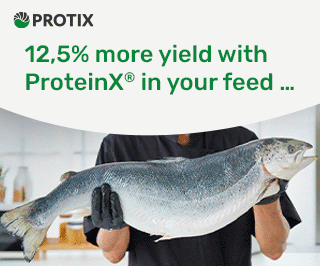Mowi-owned Canadian salmon farmer loses fish to warm waters.
There’s been a significant salmon die-off at the East Coast Canadian salmon farmer Northern Harvest Sea Farms, the company posted to its Facebook page. But it also seems to have angered reps for Newfoundland and Labrador’s Fish, Food and Allied Workers Union (FFAW-Unifor).
Northern Harvest Sea Farms
Mowi bought the salmon farm in Newfoundland and Labrador, Canada, in 2017 for EUR 216 million. The site came fully integrated with its own broodstock, smolt/hatchery, farming sites and processing operations.

Northern Harvest Sea Farms wrote that it had: “experienced an environmental event involving prolonged high water temperatures at some sea sites on the south coast of Newfoundland. The high temperatures created low oxygen conditions that resulted in fish mortalities.
Unavailable
It added that “in response, the immediate removal of all mortalities and the harvest of remaining fish at these sea sites began. While information related to mortality and fish harvest statistics are unavailable at this time as the information is still being collected.
“Northern Harvest’s continuous fish health monitoring protocols made it possible to take immediate action as soon as the issue was observed, and there was no loss of containment.
“The fish mortalities pose no harm to humans, the environment, nor other fish or shellfish species.
“Our company has added significant resources to address this matter and is working at maximum effort, which includes employing all available dive teams in both Newfoundland and Labrador and dive teams from New Brunswick, and using three large purse seiners.
“Much as in agriculture, where frost and drought can impact crops, so too in aquaculture can fish be affected by environmental events like superchill and high water temperatures. We, like other farmers, are accustomed to dealing with the effects of climate change and will continue to adapt to our changing environment. The superchill event in 2014 is a prior example of a temperature event affecting aquaculture sites. That event caused significant mortalities, and did not impact fishing activity or the environment.”
Fish, Food and Allied Workers union (FFAW-Unifor) also posted a statement on its Facebook page.

2 million
As reported in CBC, FFAW-Unifor president Keith Sullivan told NL minister of Fisheries and Land Resources Gerry Byrne that despite did not having the exact figures, the potential number of fish affected “could have been up to 2 million”.
Sullivan also added that “the practices of open-net pen farming come with the potential for very serious, far-reaching impacts on the fishing industry in the area”.
In response, Northern Harvest Sea Farms wrote that Sullivan’s statment was “curious” and that “harvesters were consulted and engaged on the placement of all sea sites, more than 100 of his own FFAW members work on Northern Harvest sea sites, and that many more FFAW members work in the plant in Harbour Breton processing Atlantic Salmon”.
SalmonBusiness has contacted Mowi for exact numbers.




